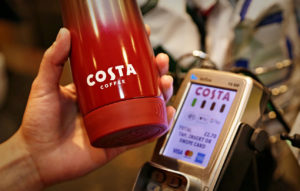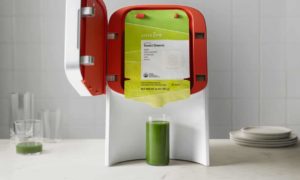
We’ve reached a point where we use emojis to order pizza, pay for stuff with our phones and watch films wherever and whenever we want. Today’s most successful ideas play into these customer demands, finding their own corners in an age of expectation and economy of convenience.
Convenience is no longer a nice-to-have. In 2019, products need to be convenient to buy and use in order to make an impact – an integral part of any FMCG launch is addressing this problem.
Nearly one in five people are on the lookout for new food and drink launches, so there’s ample interest in the sector. With the likes of Instagramable content, veganism, sustainable meals and more all coming into their own over the last few years, FMCG brands can’t afford to miss out on launching something that will captivate and inspire.
To do this, customers’ habits must be nailed down to the very last detail.
Way before the marketing communications thinking has even begun, it’s integral that brands study customers’ behaviours and desires at the NPD stage. Arguably, it needs to be before even that. The best launch marketing takes ideas from the boardroom to the living room, so the earlier, the better; this makes more room for destroy/rebuild/repeat design thinking to refine both the product and the messaging.

To most effectively launch and deliver the product, marketing needs to be involved for the entire journey, so they can implicitly understand the thinking behind the final product – and, in this case, what value the convenience angle adds to the consumer journey. It’s little good tagging it on three months before the official launch – properly grasping a target audience is much easier if agencies are immersed in the new product every step of the way.
One brand that’s nailed the genuine customer need is Japan’s Koike-Ya. It recently developed ‘drinkable’ One Hand Chips, which were originally conceived to allow customers access to those pesky crumbs at the bottom of the bag. However, the idea has since morphed, with One Hand Chips’ USP being that it prevents everyone from smartphone users to professional gamers and would-be romantics from greasing up their screens, controllers or better halves, instead pouring the snack straight into their mouths. Thus, that pesky customer problem is solved through an innovative solution.
That first impression is everything, because it isn’t so easy to ignore a bad experience.

If a brand launches something that doesn’t match consumers’ needs, they’ll just go elsewhere. They’re not tied to one particular brand because they don’t need to be – brands need to give them that reason from the word ‘go’. Or, in Costa Coffee’s case, ‘drink’. The brand’s newly launched, reusable coffee cup features built-in smart payment technology, and a feel-good donation to its charitable foundation with every purchase.
Right there, it ticks the convenience and brand equity boxes, through its reusability and smart payment USPs. When you think about it, it’s totally forward-thinking – it solves that need before you even realised you had it. You’d never think ‘I must pay for coffee with my coffee cup’, but Costa’s solution makes paying by card seem a tad old hat.
It’s no good copying convenience.
The key lies in surprise and delight – FMCG brands and their agencies need to come up with new ways to add convenience to their offerings, without bolting it on for the sake of it. Otherwise, plot holes are prised wide open. You don’t have to look far for examples here – Juicero’s recent launch and fall is a stark reminder.

While well-meaning, the company offered a solution nobody wanted. Paying $400 for a machine that made smoothies from pre-packed containers seemed a little redundant, when most customers could just thaw their raspberries for a few extra minutes instead. It didn’t offer anything to enhance people’s lives, and that’s why its launch never got off the ground.
On the other hand, look at laundry brand Tide. The detergent brand has gone from strength to strength, moving beyond selling washing powder to busy homes and easing customers’ household drudgery. Now Tide provides personalised washing, folding, dry cleaning, alterations and delivery on demand.
More than anything, launching with convenience in mind is about groundwork. Research. In the 21st century, brands need to pre-empt that customer need in order to launch ahead of the game and keep people happy. Everything lives and dies on that need.
Article by Colin Clark, Planning Director at Five by Five.

About Colin:
Colin heads up the launch planning & strategy team at launch marketing agency Five by Five. Prior to Five by Five, he held senior board-level positions in agencies in various roles including head of direct marketing, managing director and planning director.
During this time, he won international awards for Volkswagen, Getty Images and COI from EDMA, ECHO, DMA and ISP, and was subsequently asked to act as a judge for several of these award committees.
Source: Five by Five

You must be logged in to post a comment Login